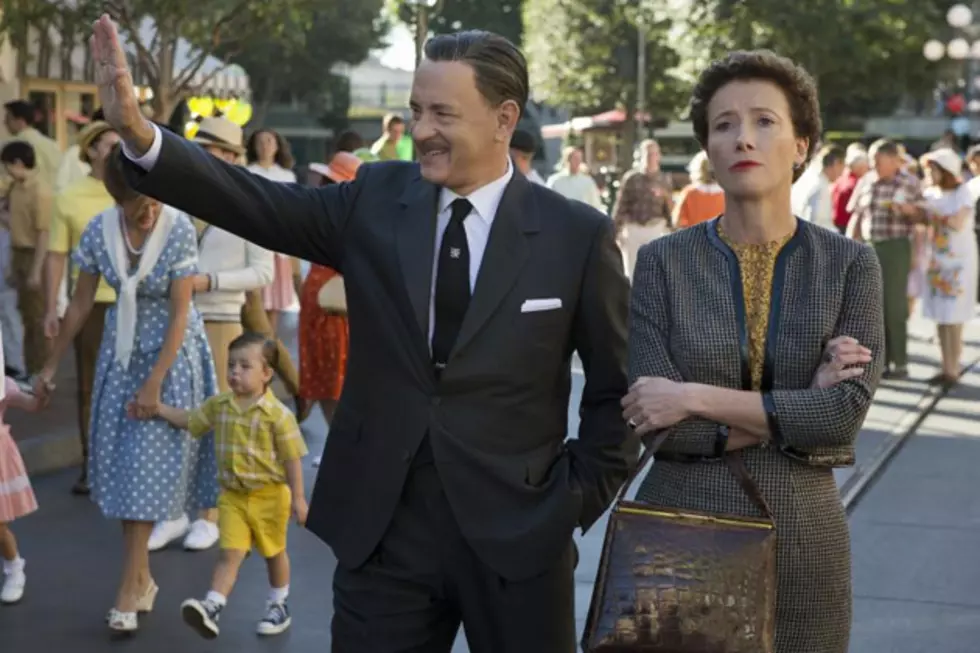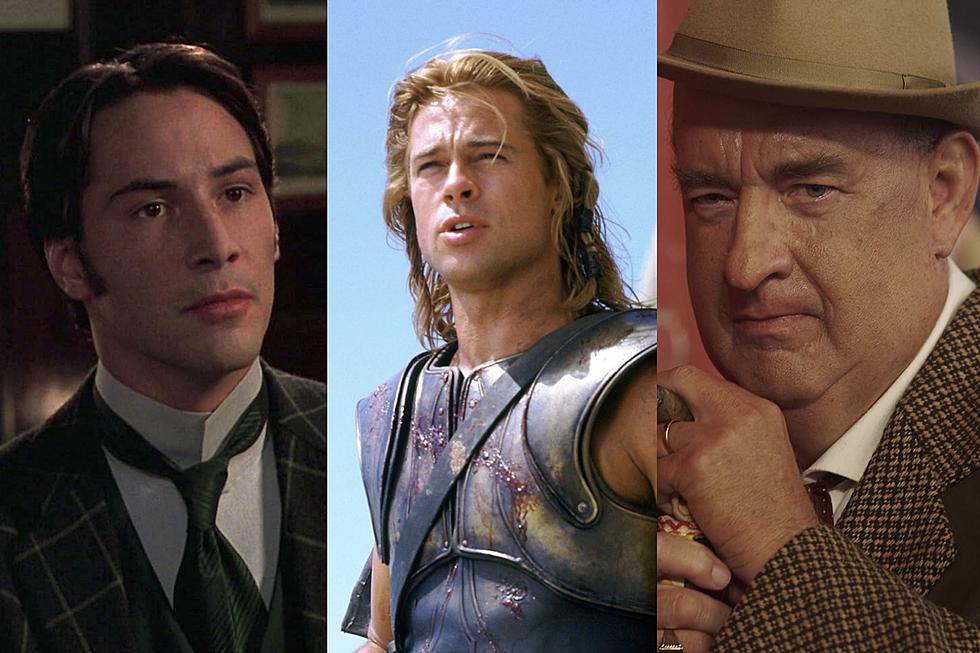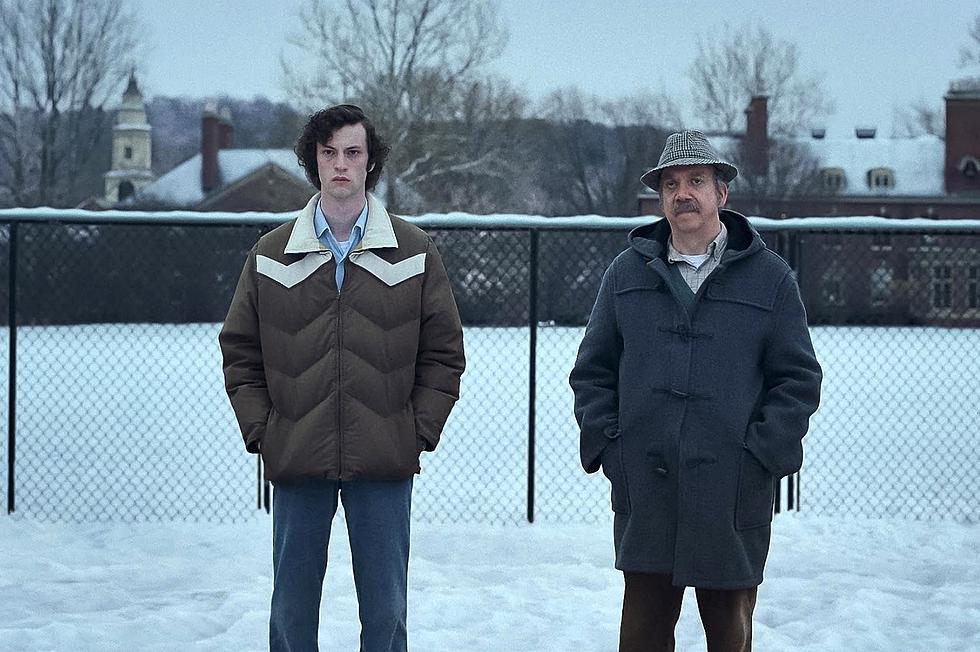
‘Saving Mr. Banks’ Review
I can't do it. I can't remove myself from the reality of my surroundings and engage with 'Saving Mr. Banks' on pure moviegoing terms.
Maybe it's a fault within me. Maybe I cling to cynicism too much. But if John Lee Hancock's film met me just halfway – if this were a roman a clef and the names of P.L. Travers, Walt Disney and Mary Poppins were changed – perhaps I could get over the hump and care about this picture more. But at the end of the day, this is a movie about Disney, made by Disney, in which a Disney business deal is presented as a transformative good. When the big emotional breakthrough happens at freaking Disneyland that was when I had to get off the ride.
Of course, one of the names has been changed. P. L. Travers, the Englishwoman who wrote the successful Mary Poppins books, and does not want to sell the rights to Walt Disney, was actually an Australian woman named Helen Goff who suffered through a traumatic childhood. Creating the Mary Poppins character – a woman who flew in, to create order in a disheveled home – was her way of working though this, but 'Saving Mr. Banks' shows how true catharsis didn't come until Uncle Walt mansplained to her that making a movie with dancing penguins was a richer form of art than mere words on a page.
Am I being cynical? Well that's in keeping with Travers' character – at least for most of the film. Emma Thompson makes great use of Kelly Marcel and Sue Smith's script, lobbing grenades of invective at Tom Hanks (Disney), Bradley Whitford (Disney scribe Don DaGradi), Jason Schwartzman and B.J. Novak (legendary composers the Sherman Brothers.) She even saves some barbs for Paul Giamatti, her upbeat driver who has the temerity to say nice things about the weather.
While British women of a certain age making cranky cracks is one of life's great treasures (something I think we can all agree on), it doesn't fly at the Happiest Place on Earth. This is clearly a woman in pain, and the ample flashbacks to her Australian upbringing and the difficult life of her father (Colin Farrell) make sure to hammer that home.
There's also little subtlety in drawing comparisons to Travers' father, a banker who died too young, to Mr. Banks in 'Mary Poppins,' a banker in need of rediscovering his family. As these connections are slowly doled out, you may be forgiven for asking a key question: Who cares? When did 'Mary Poppins' become such an important text that it needs to be scrutinized and analyzed like tablets of Hammurabi's Code?
Okay, so perhaps I'm focusing too much on the specifics. This is a movie about people and their emotional breakthroughs, and how creating art through collaboration can lead to profound changes. Unfortunately, every time 'Saving Mr. Banks' makes a move in an interesting direction it is undercut by the bland scenario. This is one of those movies based on real life that is only interesting if you keep saying to yourself “it would be interesting to live through this.” In other words, if you were chums with Don DaGradi and he was at a bar telling you about this intransigent author giving Walt Disney a hard time before signing over the rights to her book, you'd be interested. In a movie, with the big swirl of music and flashbacks and slow-motion, it's not enough. Moreover, the gimmick of this picture - Hey, that's really Disneyland!) - is the only reason this movie exists and ties it to this mundane nature of common truth. It kills the drama.
'Saving Mr. Banks' has more than its share of manufactured weepie moments, but, really, this is “Deal Memo: The Movie." The story of someone putting ink on a contract. Of further note is how there appears to be a lot of fascinating things about Ms. Travers left off-screen. She never married, something quite out of the ordinary for this time. Also, a quick glance at her desk shows a book by spiritualist George Gurdjieff. You'll have to search Google to learn the significance of both of these facts. What you get in 'Saving Mr. Banks' is the aha moment for the phrase “spoonful of sugar.” Disney fanatics will be enthralled. Everyone else will be mildly entertained. And, considering what we learn about the truth-bending in film adaptations, it's probably a false moment anyway.
'Saving Mr. Banks' opens in theaters on December 20.
Jordan Hoffman is a writer, critic and lapsed filmmaker living in New York City. His work can also be seen on Film.com, Badass Digest and StarTrek.com.
More From ScreenCrush









